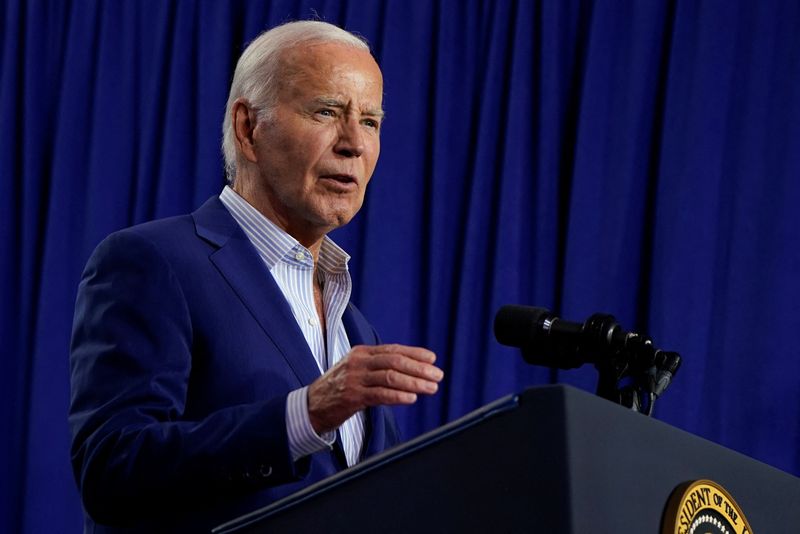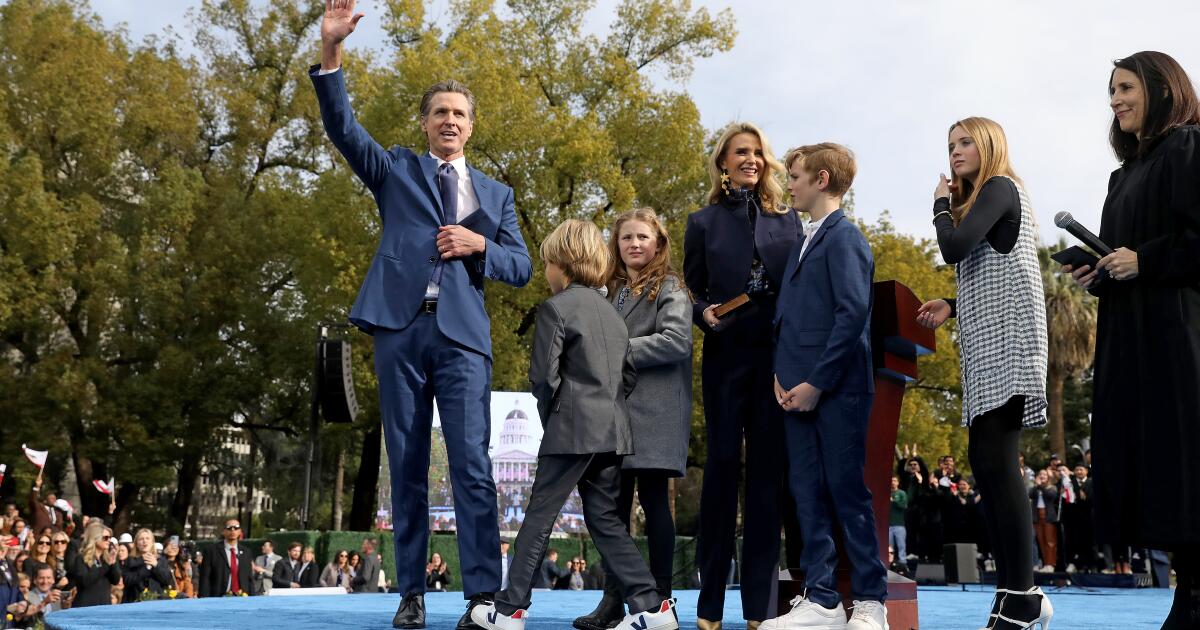Business
How to talk about working out to your kids


When it comes to modeling ideas around healthy fitness for her two-year-old son, running coach and former pro distance runner Kaitlin Gregg Goodman is careful about how she frames her own passion for the sport: that it’s something she does for pleasure.
“I want him to really think––and know––it’s something I do for fun, for health, something we do for ourselves. Not something I have to do,” she tells Fortune, but something she gets to do.
She, like so many other adults, understands that relationships with exercise can be complex, and often negative. That’s why Gregg Goodman is starting early with positivity around the topic with her son, and why experts advise other parents to do the same.
“When it comes to body image and exercise, our social and family network can be either a protective factor or a risk factor,” says Deborah Glasofer, associate professor of clinical medical psychology in psychiatry at the Columbia Department of Psychiatry.
This can start at a young age, she says.
“Children are sponges,” Glasofer tells Fortune. “If you hear your child use disparaging language about their appearance or express unhealthy ideas about exercise, that should ring an alarm in your mind to be mindful of your potential role in that.”
Below, experts weigh in on how your words and actions around fitness can impact impressionable kids in your life, at any age—and how to promote a positive relationship with exercise.
Focus on what your body can do
Our bodies do a lot for us every day, but that can get lost when we’re stressed about appearance and not feeling our greatest.
Licensed family therapist Mary Beth Somich says it’s important for parents to use language that encourages their children—and themselves—–to focus on what their body can do, versus how it looks.
“Parents can help their children develop a healthy appreciation for their bodies by discussing the strengths and abilities their child possesses,” she tells Fortune.
Show your kids that being active can be fun
Physical activity doesn’t have to be grueling and challenging all the time. Even light exercise is beneficial for your mental and physical health.
And parents can do a variety of activities with their kids to bond and stay moving—many of which might not even feel like exercise.
“Outdoor adventures like nature walks or time at the park, sports, dance parties, yoga, stretching, gardening. The options are endless,” Somich says.
Glasofer agrees, and says “fun” is in the eye of the beholder, meaning it’s worth it to try different activities together to see what works what you both enjoy best.
“Leaning into the fun can make it less of a chore,” she says, which is what stops many people from wanting to exercise in the first place.
Avoid framing exercise as an obligation
Exercise is great for health and longevity reasons, but framing it as an obligation can lead to a negative relationship with it.
“It is helpful to reframe the language used around exercise by saying, ‘I choose to work out today’ rather than ‘I have to work out today,’” Somich says. “This creates a sense of empowerment.”
Giving children the choice to do an activity also gives them control, which is a key part of developmentgrowing up, according to PennState Extension.
Remember food isn’t ‘earned’
Fitness and nutrition are intertwined—and saying things like you earned the dessert you ordered because you worked out can make your child believe they don’t deserve to eat the food they enjoy without working for it, too, says Glasofer.
“Unfortunately, eating and exercise are often paired, and there isn’t any great reason for this,” she says. “No matter your eating habits, exercise has benefits psychologically and physically.”
Somich also stresses the importance of not labeling foods as “good” or “bad” around children—or even for yourself. Instead, acknowledge that healthy eating includes a variety of foods in moderation.
Gregg Goodman says she pays close attention to how she words ideas related to food and exercise around her son.
“I make sure I’m not using language like, ‘This food is a reward for running,’” she says. She instead says her food is refueling her body after a hard effort.
Body neutrality can be just as beneficial as body positivity
It’s not always easy to like what we see in the mirror. But Somich says you don’t have to praise your appearance to make a positive impact on your kids.
“Parents can use positive or neutral language, avoiding negative or shameful body-focused discussions,” she says.
Modeling positive outlooks and behaviors doesn’t have to include positive talk we don’t agree with, Somich says. It’s more about making sure the negative talk isn’t present.
It’s not just what you say
Finally, remember that children pick up on your attitudes more than you may think, suggests Glasofer.
“Sometimes actions are worth a thousand words,” she says.
And most actions don’t go unnoticed by even the youngest members of a family—including things like scrolling on social media, looking at different workout routines, checking your fitness tracker incessantly, or choosing to do a second workout instead of a family activity.
“Body image concerns are easily projected onto children unconsciously,” says Somich, “which is why it is so important to self-reflect on the language and behaviors that you are modeling or the messaging you are promoting to your children.”
Business
UK polls point to a big Labour win. The party fears voter complacency

Labour leader Keir Starmer poses for photos as he visits the Vale Inn on June 27, 2024 in Macclesfield, United Kingdom. In the final week of campaigning, Labour outlined its plans to expand opportunities for young people.
Cameron Smith | Getty Images News | Getty Images
LONDON — There’s been one main narrative since the U.K.’s Conservative Prime Minister Rishi Sunak called a general election back in May — that the opposing Labour Party would win the vote with a landslide.
While voter polls may have differed in scale and methodology, the results have pointed in one direction, showing that the center-left Labour Party has around a 20-point lead on the Conservatives. Labour is on track to win around 40% of the vote while roughly 20% of the support is projected to go to the Tories, according to a Sky News poll tracker.
Reform UK, led by arch-Brexiteer Nigel Farage, is seen with 16% of the vote, after eating away at Tory support, while the Liberal Democrats are seen gaining around 11% and the Greens with 6%. The Scottish National Party is predicted to win 2.9% of the vote.
Labour candidates and leader Keir Starmer have been keen to play down the level of support that the party enjoys, fearing voter complacency and the appearance of “having it in the bag” — a stance that could prompt voter apathy and a lower turnout of supporters at the polls, or a backlash from Conservative-inclined sections of the electorate.
“The Labour Party wants to be able to be convince voters that it’s absolutely central that they turn out and vote, because otherwise the Tories will win, and the Tories are desperate for people to think that they have still got a chance, and therefore it’s worth turning up,” Britain’s top polling expert John Curtice told CNBC.
Question marks have risen in the past over the accuracy of British voter polls, with previous projections over or underestimating support for various political parties. The errors have often come about because of inadequate sampling or of factors that are harder to control, such as voters being “shy” when polled on which party they intended to support.
Labour Party leader Sir Keir Starmer speaks ahead of the U.K.’s general election on July 4, 2024.
Anthony Devlin | Getty Images News | Getty Images
This year, however, experts tend to agree that the polls show such a swing to Labour that, even if the scale of support were wrong, the overall result would be the same: a convincing win for the opposition party.
“My attitude is [that] a poll should be taken but not inhaled,” Curtice said wryly. “The point is, you shouldn’t be looking at them to provide you with pinpoint accuracy, they should give you a reasonable indication of the direction of travel.”
“It just so happens that because this is an election in which apparently one party is so far ahead, much as [it was] in 1997, the polls could be quite a bit out — but nobody will notice,” he noted, referencing the year when the Labour Party won a landslide against the Conservatives, ending the latter party’s then 18-year rule.
Labour ‘spin’?
The Labour Party itself is understandably keen to downplay the polls, with a spokesperson telling CNBC that the party doesn’t comment on projections, “as they vary and fluctuate.”
“Instead, we’re working hard to take our message of change to voters ahead of the only poll that matters, on 4 July,” the spokesperson stated.
On Monday, Keir Starmer said no vote should be taken for granted, asking his supporters to continue campaigning until polls closed on Thursday.
“The fight for change is for you, but change will only happen if you vote for it. That is the message we have to take to every doorstep these last few hours and days until 10 o’clock on Thursday night.”
“Nothing must be taken for granted, every vote has to be earned. The polls don’t predict the future, we have to get out there,” he told campaign supporters in Hitchin.
Labour leader Sir Keir Starmer during a visit to Hitchin, Hertfordshire, while on the General Election campaign trail. Picture date: Monday July 1, 2024.
Stefan Rousseau – Pa Images | Pa Images | Getty Images
Labour’s former campaign and communications directors, Alastair Campbell, one of the chief strategists behind the rebranding of the party in the 1990s as ‘New Labour’ ahead of its monumental election win in 1997, told CNBC that he doubts current voter polls.
“I get really worried about about the way that these election debates are now unfolding, virtually everything in the debate at the moment is about these opinion polls,” he told CNBC two weeks ago.
“Apart from a few postal votes, nobody’s voted yet. And I just do not for one second believe that the Conservatives are going to get virtually wiped out, I just don’t believe it,” he said.
“I just think there’s something going very, very wrong with these polls, I could be completely wrong, and it’s true that Labour have been consistently ahead. But I just wish that, in our election periods, we would talk less about polls and more about what the parties are saying.”

Polling expert Matt Beech, director of the Centre for British Politics at the University of Hull, said Campbell’s position was designed to persuade Labour-inclined voters to cast their ballots.
“They want to make sure that they get as big a majority as possible. They’re all very much aware of [the lead-up to the election in] 1992 with the phenomenon of ‘shy Tories,’ when the polls said Labour would win and they didn’t …. [But] they’re not actually that genuinely worried about that. What they want to have a 1997-like landslide tsunami,” Beech told CNBC.
He added, “So if you keep banging on that drum [that the polls are not correct], you’re going to say to Labour-inclined voters, ‘please go out and vote.’ But it’s not that ‘we’re actually scared we’re not going to win, we are going to win comfortably. But we want a majority that enables us to push our agenda and we want this win to mean that we’re there for two terms.’“
Business
Ad-supported Murdoch Netflix rival to launch in the UK

Rupert Murdoch’s Fox Corporation is entering the UK’s highly competitive free, ad-supported video streaming market.
Tubi will compete with the likes of Netflix, Disney+, ITVX, Channel 4’s streaming platform as well as the BBC iPlayer.
The platform has been quickly gaining market share in the US where, according to Fox, it has almost 80 million monthly active users.
In the UK, Tubi says it will offer more than 20,000 films and TV series, including content from Disney, Lionsgate, NBCUniversal and Sony Pictures Entertainment.
The platform will also include a selection of British, Indian and Nigerian content.
UK viewers will be able to access content on the Tubi webpage and via a smartphone app.
Fox Corporation bought Tubi in 2020 for $440m (£348m) as the US media giant looked to attract younger audiences.
In recent years, streaming companies like Netflix, Amazon Prime Video and Disney+ have launched ad-supported services and raised subscription prices as they tried to boost revenues.
The moves came as they faced pressure to spend more money to grow their libraries of content as they try to attract more customers in an increasingly competitive market.
In March, Mr Murdoch’s TalkTV network announced that it would stop broadcasting as a terrestrial television channel and became a strictly online service.
The network launched in 2022 but struggled to attract viewers on its linear platform.
Mr Murdoch had hoped the network would shake up the broadcasting establishment by offering an opinion-led alternative to established outlets.
The media tycoon played a pivotal role in the development of the UK’s broadcasting industry by launching Sky in 1984.
Some commentators saw TalkTV as an attempt by Mr Murdoch to recreate his success with Sky.
Mr Murdoch’s 21st Century Fox sold its 39% stake in Sky to NBCUniversal’s owner Comcast in 2018 after losing a battle for control of the network.
Business
Biden knocks Supreme Court ruling on presidential immunity By Reuters

By Andrea Shalal
WASHINGTON (Reuters) -U.S. President Joe Biden on Monday criticized the Supreme Court ruling on presidential immunity that was seen as a win for his rival, former President Donald Trump, in forceful remarks from the White House.
The U.S. Supreme Court found on Monday that Trump cannot be prosecuted for any actions that were within his constitutional powers as president, but can be for private acts, in a landmark ruling recognizing for the first time any form of presidential immunity from prosecution.
“This nation was founded on the principle that there are no kings in America,” Biden said, adding that no one is above the law. With the Supreme Court decision, he said, “That fundamentally changed.”
Biden is running for re-election against Trump and has been sharply critical of his rival’s actions related to the Jan. 6, 2021, raid on the U.S. Capitol by Trump’s supporters, who believed Trump’s false claims that he had won the 2020 election.

Biden, 81, was making his first set of remarks at the White House since his shaky debate against Trump last week led to calls for him to step aside as the Democratic Party’s standard-bearer for the election.
After he stumbled over his words on the Atlanta debate stage, his remarks and comportment will be scrutinized for signs that he is up to the job of running for re-election and of governing the country for four more years.
-

 African History5 years ago
African History5 years agoA Closer Look: Afro-Mexicans 🇲🇽
-

 African History5 months ago
African History5 months agoBlack History Facts I had to Learn on My Own pt.6 📜
-

 African History5 years ago
African History5 years agoA Closer Look: Afro-Mexicans 🇲🇽
-

 African History1 year ago
African History1 year agoMajor African Tribes taken away during the Atlantic Slave Trade🌍 #slavetrade #africanamericanhistory
-

 African History1 year ago
African History1 year agoCameroon 🇨🇲 World Cup History (1962-2022) #football #realmadrid #shorts
-

 African History1 year ago
African History1 year agoPROOF AFRICAN AMERICANS AIN'T FROM AFRICA DOCUMENTED EVIDENCE
-

 African History5 months ago
African History5 months agoBlack History Inventors: Mary Kenner 🩸
-

 African History5 months ago
African History5 months agoMr Incredible Becoming Canny/Uncanny Mapping (You live in Paraguay 🇵🇾)

































